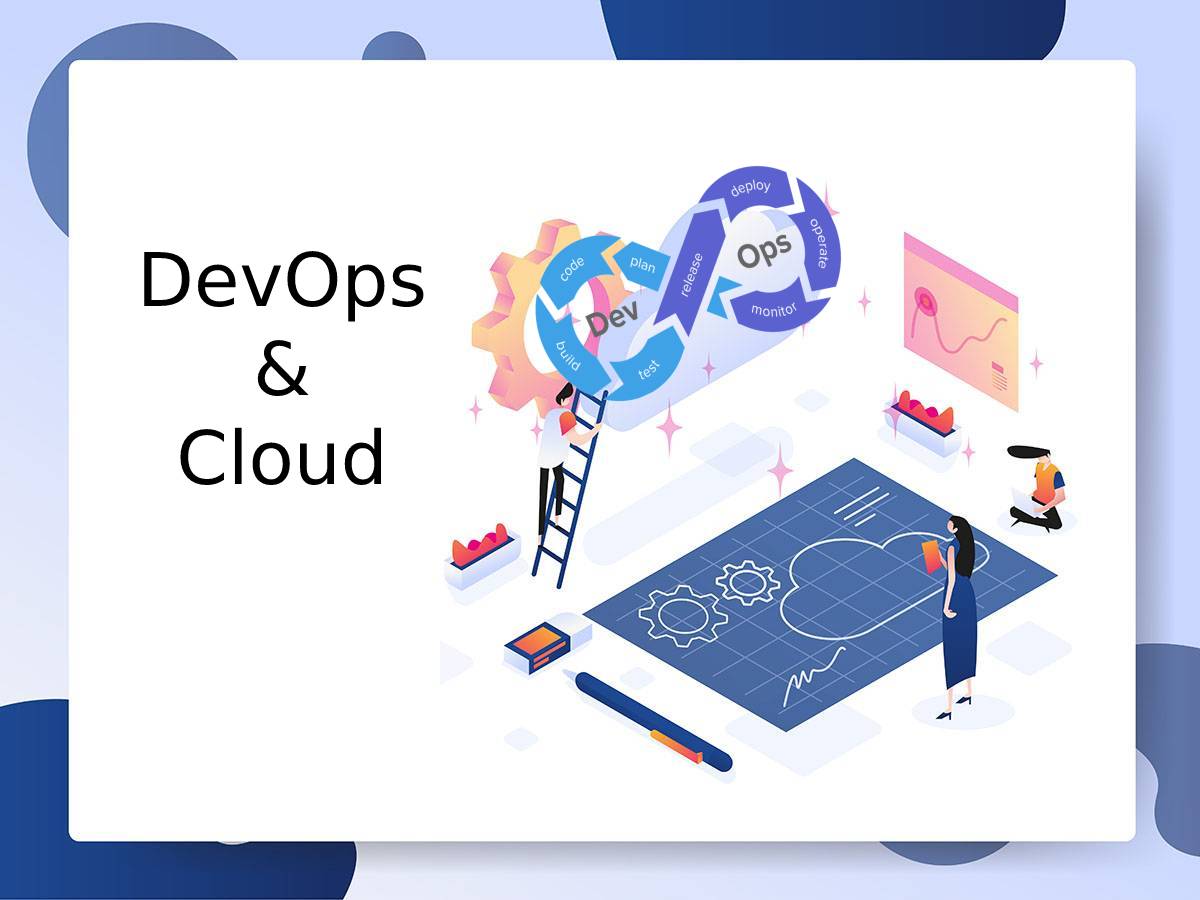As companies adopt digital technology to help them do their day-to-day activities, transformation takes place when these organizations fully leverage the full range of digital technologies to transform everything they do like processes, capabilities, and models. They must keep in mind moves that are currently ongoing as well as those that are upcoming. DevOps and cloud are relevant for such current examination. We want to know if these transformations are critical to these processes, and if so, why?
Before delving into DevOps, we would want to briefly talk about what it means for your digital transformation endeavors. In addition, DevOps is something relatively new to the majority of individuals. DevOps is on the rise since more and more software firms provide software as a service, and customers (rather than operators) are responsible for maintaining and managing the product. It talks about the involvement of operations and development engineers throughout the whole of the service life of a product, starting with design and going all the way through the development phase and on to manufacturing support. It is defined by the fact that many of the same strategies used by developers in the creation of their system work are also used by operations personnel while working on the automation of agile methodology. Innovative DevOps is geared toward fundamental development improvements and represents a transition to a new model of cloud application development by offering real-time, responsive applications for businesses.
The modernization of processes and functions in support of digital transformation
Digital transformation is about establishing applications across platforms, with platforms linked to business objectives, to develop quickly and provide quicker feedback to both business and end-users. The goal is to release these apps at a quicker rate. Companies that are interested in pursuing a digital transformation strategy must use DevOps. DevOps provides companies or firms boost their digital transformation efforts by using regular delivery, deployment, auditing, and testing procedures.
When firms use DevOps approaches, they’re able to approach digital transformation from a business viewpoint, which helps improve the bottom line, enhance customer experience, and reduce operational expenses. Using this tool will aid in getting both development and operations teams to sit at the same platform concerning having a full view on all developments, deployments, production fixes, problems, and operational matters, unlike the conventional application development methodologies.
Enabling scheduled releases and speedier communication to react to production difficulties, code problems, and application performance problems caused by unforeseen application downtimes and rollbacks speeds up releases and enhances communication.
To speed up the application delivery process, it is critical to automate any unnecessary activity. Automation handles all of these unnecessary tasks. A significant number of them are project management functions, such as code analysis, continuous integration, integration, and testing. This minimizes the time spent on both development and IT staff for firefighting, as well as bringing substantial process changes to error mitigation, the rollout of features, and a more consistent feedback loop via continuous monitoring and testing processes. In this instance, the explanation is that the application’s life span has been increased due to a reduction in human interaction and more automation being implemented using DevOps tools and technologies.
Enabling shorter feedback cycles is critical to digital transformation programs since these projects rely on being able to get input quickly from consumers and business users. DevOps implementation is a must to take a firm’s digital transformation journey from start to finish and to meet the company’s service level agreements, responsiveness within the correct timeframe is critical.
DevOps and Cloud: Increasing the global effect of Digital Transformation
Now let’s see if we can have a better understanding of how Cloud and DevOps consulting, albeit autonomous, come together to assist you to reach your digital transformation goals.
- Reduced time to market for goods is achieved by having streamlined developer procedures and quicker access to development environments.
- Reducing cloud complexity and system maintenance via infrastructure as code and DevOps automation decreases cloud complexity and maintenance costs.
- Automation of repeated procedures minimizes the risk of a mistake caused by ‘fat-fingers’ and also helps to incorporate security controls from the beginning.
- Cloud-based continuous operations not only minimize downtime but also make it possible for developers to design stateless apps, which in turn increases the availability of apps and leads to increased customer satisfaction.
- Through the use of cloud computing and DevOps, enterprises can greatly enhance scalability while cutting costs of infrastructure and widening the reach of their business.
Put your money on DevOps and cloud training
A DevOps approach in the cloud is more than simply a struggle with technology; it is a war for the minds of the whole organization. Even though the fields are relatively new, IT workers often have insufficient knowledge and are therefore more likely to make errors that might have been avoided simply.
Asserting the benefits of DevOps in the cloud will benefit the members of your team by training and mentoring them, helping them to comprehend, and then allowing them to embrace the implementation of DevOps in the cloud.
Conclusion
To create a mature DevOps ecosystem, it is essential to have a solid foundation in place. This foundation must be prepared to support the maturity of the company and ecosystem, which will depend on the technology itself.
When you use cloud-based resources, you will no longer have to wait for capital resources to be authorized and made accessible endlessly. Now it is simple to keep track of the different resources such as computing capacity, memory, and storage used by various applications, developers, users, and data; this helps to decrease the number of individual records that have to be tracked. This mutual interdependence is contributing to DevOps accelerating cloud development, resulting in more growth for the organization while at the same time empowering each other.
It is now up to customers to be king in the digital world, and the success of a company rests solely on how customers experience the firm in real-time. The benefits of being nimble are apparent, as firms are constantly changing their processes depending on input and involvement from customers.
Any business, no matter where it operates, in this age of digitalization has to include consumer input and input from contacts with customers to run efficiently. Thus, the ultimate success here will depend on how swiftly you respond to client input, how adeptly you adapt product adjustments in keeping with client desires, and how rapidly you introduce these modifications.
















